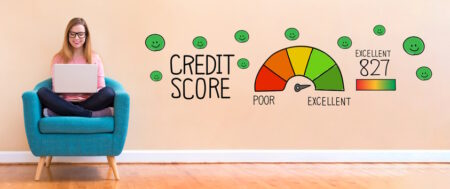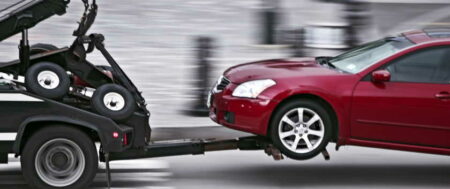Bad Credit Car Loans
It can be distressing to be turned down for a car loan by a dealership, and it can feel as if there is no hope for getting the car of your dreams when it occurs.
When it does happen, many people settle for driving a vehicle that is less than ideal, while knowing they are in a better financial position now and can more than afford the vehicle they actually want.
Auto finance can be daunting, but fortunately there are options for people with bad credit, and it doesn’t have to hold you back from receiving financing and owning your own car at an affordable price.
Related: Bad Credit and a Low Down Payment?
One of the ways to achieve this is to check online for bad credit car dealerships, which are often willing to finance people whose credit is less than ideal.
By understanding your options and knowing what to do if you can’t get financing through a traditional dealership because of bad credit, you can make a more informed decision about what your next car will be and get the vehicle that is right for you.
The following is everything you need to know about getting bad credit car loans, including information about trade-ins and how to find the right credit union for your next vehicle.
General Information About Bad Credit
If you have bad credit, you can still get financed for a vehicle you want. However, it is essential to know how to go about doing so, including information about what credit score constitutes good and bad credit, how much to put down if you have bad credit, and much more.
While trading in a vehicle that has value is one way to lower the overall cost, there are many other ways to make getting a new car more affordable, and there are techniques for getting a great car you’re going to want to know.
Can you get a car loan with bad credit?
The short answer is yes. You can get bad credit auto loans, but there are certain car lots or credit unions that may not approve you for certain cars if your credit score is low. Therefore, it’s important to understand all of your options when getting a used car loan with bad credit.
A traditional auto dealership relies on the buyer to get financing through a financial institution such as a bank, and they have strict income and credit requirements, so it is harder to get a car loan through this method.
However, there are certain credit institutions that will give financing to someone with bad credit, although the interest rate is likely to be rather high.
Another popular option is to visit a buy here pay here car dealership, which typically provides financing themselves. Buy here pay here dealerships – or bad credit auto dealers – are often much more willing to finance someone with poor credit.
What does your credit score need to be to get a car loan?
There are several factors that play a role in whether or not a buyer receives financing for a vehicle, including a credit score.
Ideally, it is best to have a credit score of over 700 for a new vehicle or over 650 for a used vehicle. However, a large number of people who are given a car loan fall between the range of 550-620, which is considered bad credit.
The main difference comes in the amount of the vehicle you are financed for and what car dealership you visit.
A more expensive, new vehicle from a traditional dealership is going to require a higher credit score than a used vehicle from a buy here pay here auto dealership.
If you have a credit score of over 700, then you are likely to have numerous options. For everyone else – which includes most car buyers – searching for the right dealership and financing opportunity might be required.
How much should I put down on a car with bad credit?
The down payment is often essential for car buyers with bad credit. By making a larger down payment, it can help car dealerships and financial institutions feel more comfortable providing you with a car loan.
Ideally, it is best to try and put down between 10-15 percent on a car if you have bad credit, although a more expensive vehicle may not require such a high percentage. Making a significant down payment upon purchase helps both the buyer and the seller.
The car dealership and institution providing the loan can feel more comfortable trusting the buyer can afford the vehicle as the monthly payments will likely be less, and the car buyer can enjoy paying less in interest as they pay off the vehicle.
What is the minimum down payment for a car?
The minimum down payment for a car depends on how bad your credit score actually is, how much the vehicle costs and several other factors. However, many car buyers with bad credit can get away with a down payment as low as $500, although more expensive vehicles may require more than a $1,000 down.
With that said, it is encouraged to save as much as possible before purchasing your next vehicle for two reasons.
First and foremost, the higher the down payment, the easier it is to pay off the car and the less you pay in interested throughout the process. In addition, saving money for the car payment allows you a safety net in the event your finances take a hit one month.
Ideally, it is best to save several thousand before purchasing a vehicle, although not all of it should be spent on the down payment and some should serve as a backup fund to ensure you never miss a payment.
How can I get a car with bad credit and no money down?
Although it is far more difficult, it is possible to get a car with bad credit and without putting any money down. Firstly, it is important for you to be able to prove that you can afford the vehicle through proof of income.
If you can show that you can afford the monthly payments and have a stable, reliable income, then you may be able to get around the down payment.
Another easy way to get around bad credit and no down payment is to have a co-signer, although it is important for them to have a good credit score or good proof of income.
Lastly, you can try trading in your current vehicle for the down payment. If the vehicle is either paid off or worth more than what is still owed, then it may be accepted as the down payment, and the trade-in value is put towards your new vehicle.
What is the average interest rate for a car loan with bad credit?
The interest rate for a car loan with bad credit ranges anywhere from seven percent to twenty percent. The reason the range is so large is that bad credit is a rather broad term, and there are different levels to bad credit. In addition, the vehicle, car dealership and institution providing the loan all play a role in the interest rate.
So, let’s break it down. Here is a tentative idea as to what interest rate you can expect to pay for a car loan with bad credit:
- Average credit (620-679): 6-10%
- Low credit (580-619): 8-13%
- Poor credit (500-579): 12-18%
One of the main factors in the amount of interest is whether or not the car is new or used. A used car is likely to require a higher interest rate, whereas a new car typically has a lower interest rate. Some car manufacturers will have a sale on occasion and offer zero percent financing if your credit is good.
Trading in a Car with Bad Credit
Some of the more frequently asked questions about bad credit and car buying has to do with trading in a car. While a trade-in can be a great way to lower the cost of your next vehicle, it is not always that simple, and it is important to know when a trade-in may or may not be accepted and what you can expect in the process of doing so.
Can I trade in my car with bad credit?
Most traditional dealerships and buy here pay here dealerships accept trade-ins, although there are a variety of factors that play a role in the value of the car and whether or not it is accepted. In simplest terms, a car that still has value and the dealership can resale or take parts from is likely accepted. If the amount owed on the vehicle is greater than its worth or does not have any value, then it probably won’t be eligible for a trade-in.
Is a trade in considered a down payment?
You can trade in a vehicle to go towards the down payment, but it must still have value. There are several factors that determine the value of a vehicle. A car that is completely paid off most often has some sort of value that can go towards the down payment.
There are also instances where a car that is financed may be accepted as a down payment, although the vehicle must have more value than what it is still owed by the owner.
However, if the owner still owes more for the vehicle then the dealership can get from reselling it, then it most likely will be turned down as a trade-in as a down payment. With that said, there are many occasions where you can trade your current vehicle in for a down payment, and it never hurts to at least try, especially if you have bad credit and limited money for the down payment.
Can I trade in a car I just financed?
You can trade in a car you just financed, but it is not always a simple process if you owe more than what the car is worth. In these instances, the car still has to be paid off, and the dealership is not going to cover the excess cost for you. However, many dealerships are willing to add the remaining cost differential onto the purchase of your new vehicle, allowing you to get rid of your current car payment and get a new vehicle that is more suitable for you.
If you do not owe much for the vehicle and the car is in good condition, then it may have more value than what is owed. In this instance, the process is pretty easy and the dealership can simply subtract what is owed for the new vehicle or count the trade-in as a down payment.
How do you trade in a car that is not paid off?
Most traditional dealerships and buy here pay here dealerships are willing to accept trade-in vehicles even if they are not completely paid off. A buyer may need to do this to avoid making two car payments or to lower the monthly payment on their vehicle.
The way it works is pretty simple. The first step is to bring your current vehicle into the dealership, and they will do an assessment to determine the vehicle’s worth. Additionally, they will consider how much you still owe on the vehicle and determine if the current value of the car or the amount that is owed is greater.
After the value is determined, the dealership can either subtract how much your new vehicle costs if the vehicle has greater value than what is owed, or they can add on the differential in the event more is owed on the vehicle then what it is actually worth.
How do I get out of an upside-down car loan?
An upside-down car loan is when the car owner owes more than wha the car is actually worth. It is actually fairly common, and there are fortunately ways to get out of an upside-down car loan and get a vehicle that is more suitable for you. There are several ways to get out of an upside-down car loan, and the best method is dependent on your specific circumstance.
Perhaps the best way for most to get out of an upside-down car loan is to simply trade it in. While not every dealership is willing to accept upside-down car loans, most are willing as long as you purchase another vehicle from them.
The way it works is somewhat straightforward. Take your car to the dealership you can get financing with and want to purchase from, and they can determine how much the car is worth and how much you owe, and add the excess onto the price of your new vehicle. With that said, other methods such as refinancing your vehicle or repairing any parts that need servicing to increase the value may work as well.
Can I trade in my financed car for a cheaper one?
Yes, you can trade in a financed vehicle for one that is cheaper and requires a lower monthly payment. The process is easy if the car is worth more than what is owed, and the additional cost can be taken away from the cost of your new car. However, a vehicle that is financed may not have as much value than what is owed on the car.
If more is owed for the vehicle than its value, which can be checked on Kelly Blue Book, then the buyer is still responsible for the difference. In these instances, the buyer can either pay off the difference up front or pay it off over time through an increased monthly payment.
Even if the car has less value than what is owed, it can still be a good idea to trade it in for a less expensive vehicle to achieve a more affordable monthly payment, allowing you to make each payment and repair a bad credit score.
Finding a credit union with bad credit
Credit unions often offer better interest rates than banks and other institutions when it comes to car buying, but it is important to know how to find the right credit union that is right for your current credit situation. Also, keep in mind that not all credit unions are willing to finance people with worse credit, so having several options to consider is highly encouraged.
Through educating yourself as to which credit unions are best for car loans and how to get the lowest interest rates and subsequent lowest monthly payments, you can enjoy more financial freedom and set yourself on a path to a better credit score.
Can I get a loan from a credit union with bad credit?
Credit unions are often willing to give a secured loan to a car buyer with bad credit, but the interest rate is likely to be higher than someone who has a good credit score. However, it is not unusual for car buyers with a credit score as low as 550 to be given a car loan.
One difference worth noting, however, is that a credit union is likely to only offer a secured loan to those with bad credit, which means the car might be able to be repossessed if the owner does not keep up with payments.
When compared to banks, a credit union is often the best way to go as they are more likely to finance individuals with bad credit and they typically offer lower interest rates on car loans. While finding the right credit union may take time and effort, it is worth the search to secure the right car loan for you.
Which credit union is best for car loans?
There are numerous credit unions that are willing to finance individuals with bad credit for a car loan, and it can be difficult to find the best one. However, there are some that have earned a more respected reputation when it comes to financing for a car purchase. Here are several credit unions that are best for car loans:
- PenFed Credit Union
- Alliant Credit Union
- Consumers Credit Union
- Foothill Credit Union
- NIH Federal Credit Union
These five credit unions often offer annual percentage rates under four percent, even for car buyers who have a bad credit score. Each one has its own pros and cons, so be sure to look into each one and determine which one is right for you and your specific credit situation.
Can you refinance a car loan with bad credit?
A refinanced car loan is when the old loan is paid off and a new loan is created in its place, and it can be a great way to lower the monthly payment on your vehicle without having to essentially do anything or make any large payments in the process.
Many credit institutions, including many banks, credit unions and dealerships, are willing to refinance the car loan of someone with bad credit if they have proven they are responsible in paying off the vehicle. It is a good idea for car buyers to attempt to refinance their vehicle after one or two years of paying it off, especially if they are currently at a high-interest rate and monthly payment.
Many who refinance their vehicle are able to significantly lower their monthly payment and may even be able to cut down on the length of time they are required to make payments on the vehicle. Most see their credit score improve as they pay the vehicle off, so it is likely your credit score is better after several years than at the time of the initial purchase, which will make the loan institution much more willing to refinance.
The Bottom Line
Your credit score does not have to hold you back from driving a car you enjoy, especially if your financial situation has improved and you can now comfortably afford the monthly payments for the vehicle.
While there are many banks that might turn down car buyers for a car loan, there are many other ways to secure financing – including through visiting a buy here pay here dealership or discussing your options with a credit union.
Don’t let previous financial mistakes hold you back from driving what you can afford now, and instead be proactive and find the right way to get around bad credit and get the car you really want.







